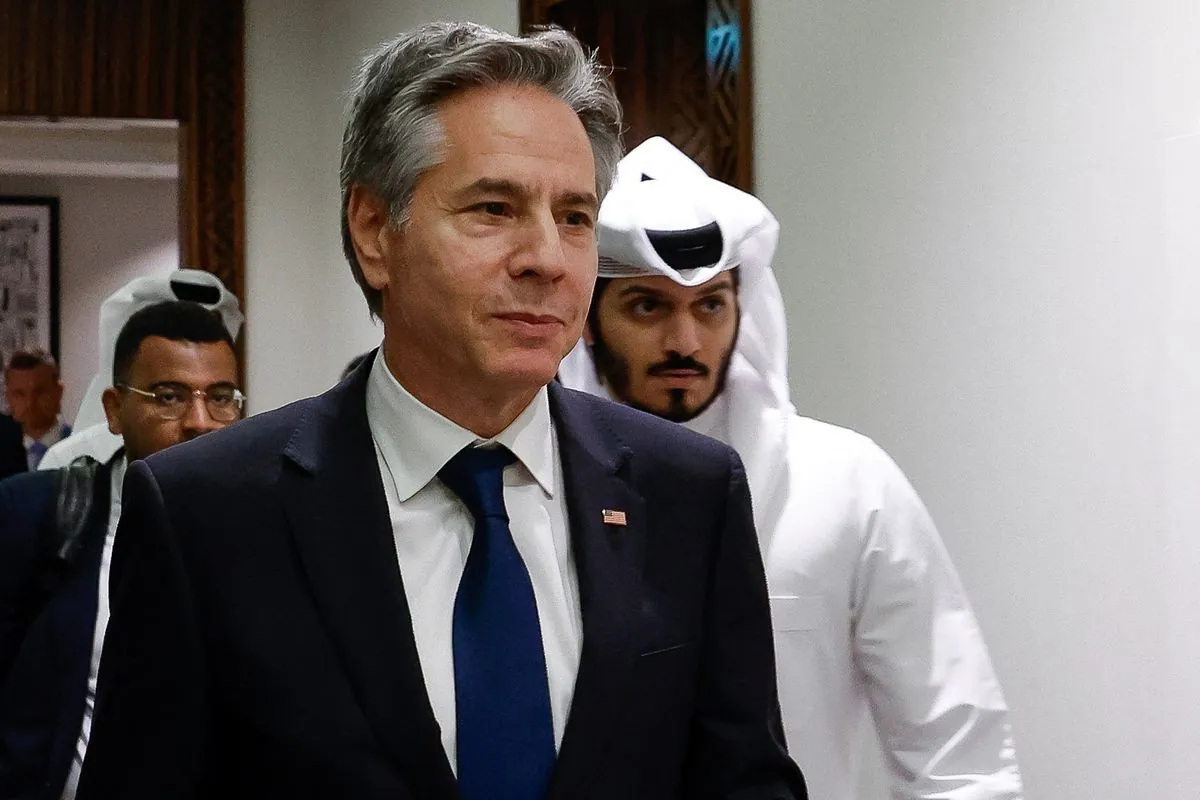US Diplomatic Push for Gaza Ceasefire Intensifies Amid Ongoing Challenges
US Secretary of State Blinken engages in Middle East diplomacy to secure Gaza ceasefire and hostage release. Israel accepts US proposal, while Hamas response awaited. Significant hurdles remain in negotiations.

US Secretary of State Antony Blinken has intensified diplomatic efforts in the Middle East, seeking to broker a ceasefire in Gaza and secure the release of hostages. This marks Blinken's ninth visit to the region since the conflict erupted 10 months ago, underscoring the urgency of the situation.
Blinken's diplomatic tour included a meeting with Egyptian President Abdel-Fattah El-Sisi in Alamein, highlighting Egypt's crucial role as a mediator in the conflict. Egypt has been instrumental in facilitating negotiations since the 1978 Camp David Accords, leveraging its unique position in the region.

The US Secretary of State then proceeded to Doha, Qatar, for talks with Qatari officials. Qatar's involvement is significant, as it has hosted a political office for Hamas since 2012, providing a channel for indirect communication.
A key development in the negotiations is the US "bridging proposal," which Israeli Prime Minister Benjamin Netanyahu has accepted. Blinken urged Hamas to respond positively to this initiative, describing it as potentially "the best, possibly the last opportunity" for a resolution.
However, significant challenges remain. Hamas has expressed concerns about the proposal, claiming it deviates from previously agreed terms. The militant group remains committed to the framework established in July 2023, based on a US proposal from May of the same year.
"We are still committed to terms agreed with mediators in July based on a proposal made by the US in May."
Major points of contention include Israel's military presence in Gaza, particularly along the Philadelphi Corridor - a 14-kilometer strip along the Gaza-Egypt border. Netanyahu insists on maintaining a troop presence to prevent weapons smuggling, while both Hamas and Egypt oppose this stance.
The humanitarian situation in Gaza remains dire. The territory, one of the world's most densely populated areas with about 2 million people in 365 square kilometers, faces severe challenges. The ongoing conflict has exacerbated issues such as unemployment, which exceeded 40% even before the current crisis.
Efforts to address immediate health concerns are also underway. Gaza's health ministry awaits polio vaccines, echoing the UN's call for a ceasefire to facilitate a vaccination campaign. This situation highlights the critical role of organizations like UNRWA in providing essential services to Palestinian refugees.
As negotiations continue, the international community watches closely. Egyptian President Sisi emphasized the need for a broader solution, stating that a ceasefire should lead to international recognition of a Palestinian state and implementation of the two-state solution.
The coming days will be crucial in determining whether this latest diplomatic push can overcome the significant hurdles and bring about a resolution to the conflict that has devastated the region for nearly a year.


































